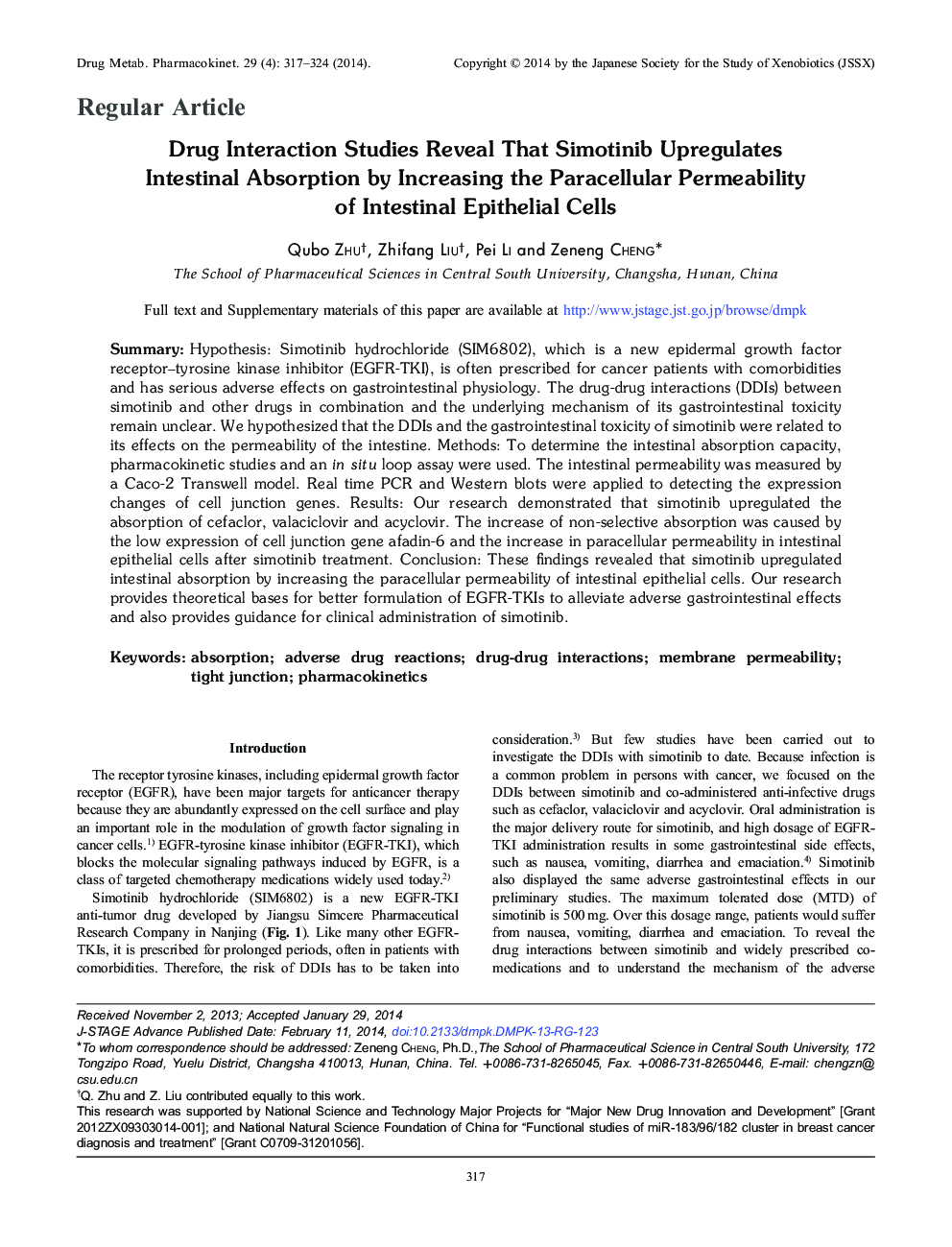| Article ID | Journal | Published Year | Pages | File Type |
|---|---|---|---|---|
| 2478873 | Drug Metabolism and Pharmacokinetics | 2014 | 8 Pages |
Abstract
Hypothesis: Simotinib hydrochloride (SIM6802), which is a new epidermal growth factor receptor-tyrosine kinase inhibitor (EGFR-TKI), is often prescribed for cancer patients with comorbidities and has serious adverse effects on gastrointestinal physiology. The drug-drug interactions (DDIs) between simotinib and other drugs in combination and the underlying mechanism of its gastrointestinal toxicity remain unclear. We hypothesized that the DDIs and the gastrointestinal toxicity of simotinib were related to its effects on the permeability of the intestine. Methods: To determine the intestinal absorption capacity, pharmacokinetic studies and an in situ loop assay were used. The intestinal permeability was measured by a Caco-2 Transwell model. Real time PCR and Western blots were applied to detecting the expression changes of cell junction genes. Results: Our research demonstrated that simotinib upregulated the absorption of cefaclor, valaciclovir and acyclovir. The increase of non-selective absorption was caused by the low expression of cell junction gene afadin-6 and the increase in paracellular permeability in intestinal epithelial cells after simotinib treatment. Conclusion: These findings revealed that simotinib upregulated intestinal absorption by increasing the paracellular permeability of intestinal epithelial cells. Our research provides theoretical bases for better formulation of EGFR-TKIs to alleviate adverse gastrointestinal effects and also provides guidance for clinical administration of simotinib.
Keywords
Related Topics
Health Sciences
Pharmacology, Toxicology and Pharmaceutical Science
Drug Discovery
Authors
Qubo Zhu, Zhifang Liu, Pei Li, Zeneng Cheng,
